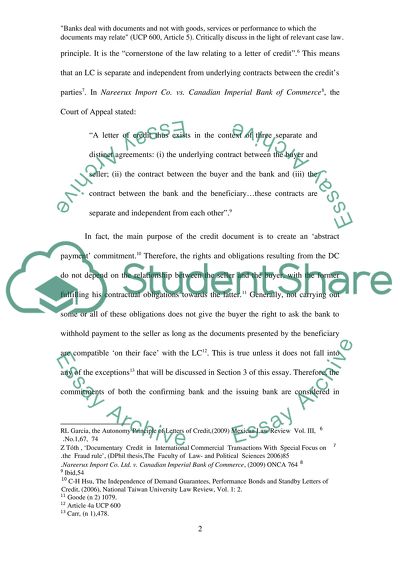Cite this document
(“Banks Deal with Documents and Not with Goods, Services or Performance Essay - 1”, n.d.)
Retrieved from https://studentshare.org/law/1449738-banks-deal-with-documents-and-not-with-goods
Retrieved from https://studentshare.org/law/1449738-banks-deal-with-documents-and-not-with-goods
(Banks Deal With Documents and Not With Goods, Services or Performance Essay - 1)
https://studentshare.org/law/1449738-banks-deal-with-documents-and-not-with-goods.
https://studentshare.org/law/1449738-banks-deal-with-documents-and-not-with-goods.
“Banks Deal With Documents and Not With Goods, Services or Performance Essay - 1”, n.d. https://studentshare.org/law/1449738-banks-deal-with-documents-and-not-with-goods.


